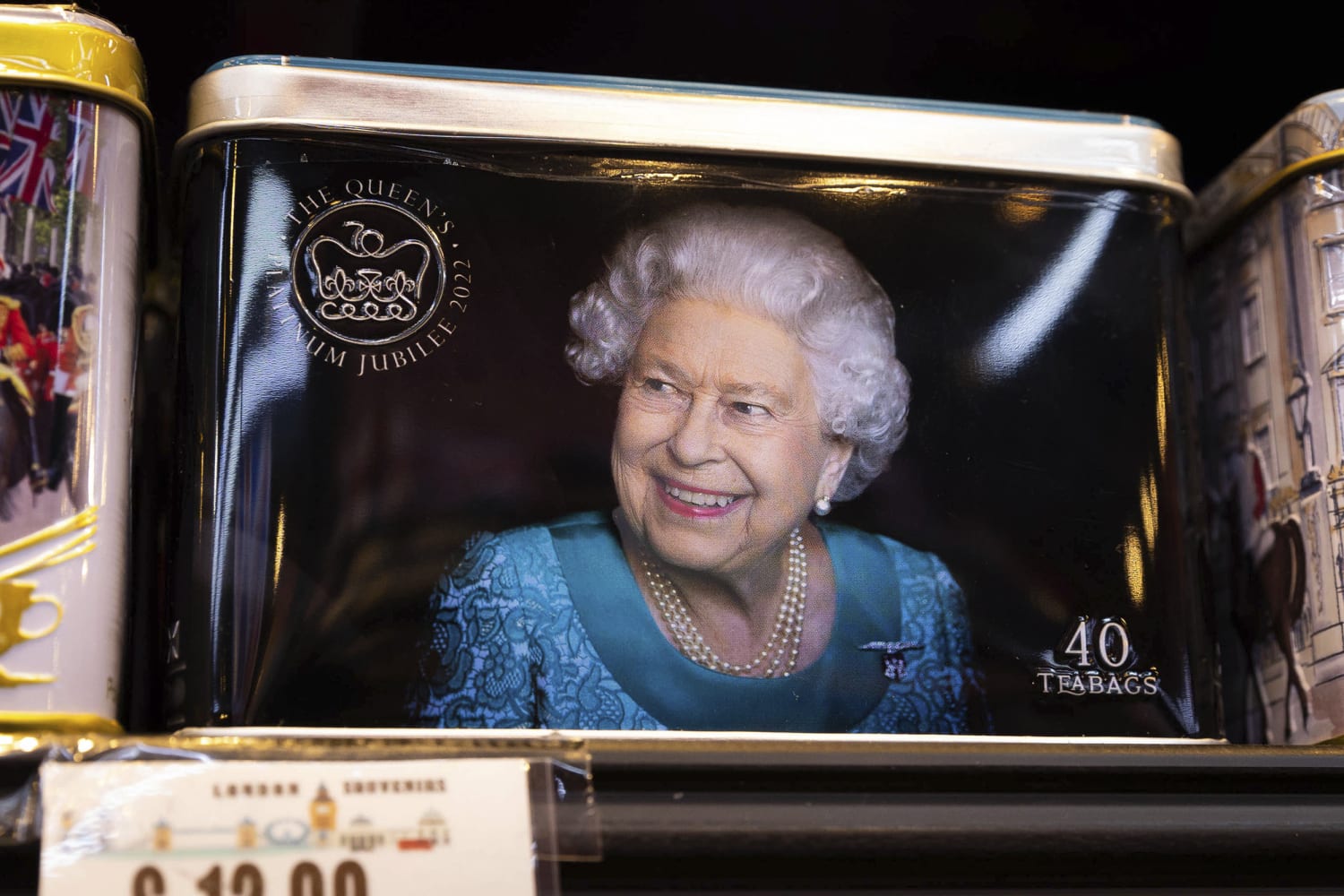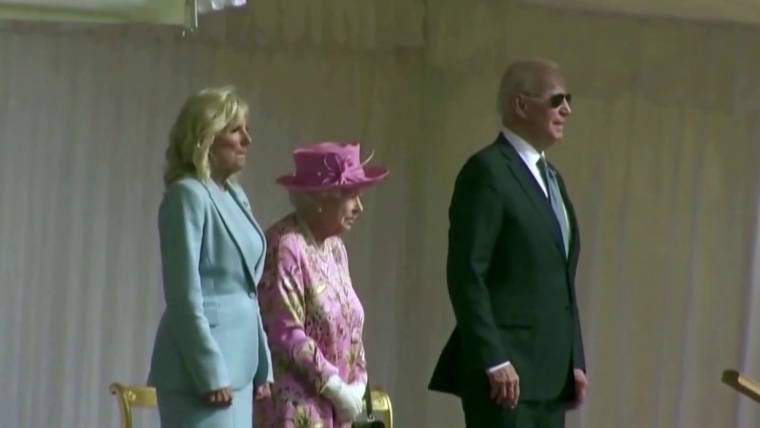The announcement from Buckingham Palace was short, simple and stark: “The Queen died peacefully at Balmoral this afternoon. The King and The Queen Consort will remain at Balmoral this evening and will return to London tomorrow.”
It was a very royal and a very British response to a monumental event on the world stage. But there was nothing short or simple about Queen Elizabeth II’s 70-year reign, and the palace’s announcement in no way reflects the feelings of many Britons right now. One only need look at the pictures of people gathered in the rain outside Buckingham Palace to know that the British stiff upper lip is quivering.
Queen Elizabeth was my constant. My North Star. For as long as I can remember.
For my part, as a British expat now living in Los Angeles, tears are streaming down my face while I write this. Trying to field the pings of condolence texts coming through, I’m awash in memories. Queen Elizabeth was my constant. My North Star. For as long as I can remember.
To Americans, this may seem bizarre, because there really is no equivalent in this country. And no, it’s not like the death of a president, who might have been respected and liked but was always a political figure from start to finish. To so many Britons, the queen was like our own grandmothers. Distant, perhaps (both literally and figuratively), but a strong, steadfast presence nonetheless.
I felt that presence acutely when celebrating her Silver Jubilee in 1977 in my hometown of Southend-on-Sea in Essex. I was only 11 years old, but it remains one of my strongest memories. The whole country was amped up. We made bunting for our street party, hung the Union Jack flag everywhere, bought the tea towels and mugs emblazoned with her image, made red, white and blue cakes. And it wasn’t lip service. Everyone was excited to honor and celebrate her.
I wish Americans could somehow tap into these celebratory feelings and the honor that people had for the queen. The honor was earned by being a head of state who was beloved and admired not because she was effervescent and bubbly — not because she had the type of charisma or faux charm that many Hollywood celebrities and politicians exude. Instead, the queen was steady and resolute; a firm, safe presence who refused to be buffeted by the prevailing winds.
For more than 70 years, she comported herself with dignity everywhere she went, poised above the fray and refraining from weighing in on political matters. To the end, she had a 75% approval rating in the U.K. She also had a net favorable image in many countries abroad.
But the feelings of celebration were also a tribute to how she found her way into the lives of her subjects. As a little girl (not cognizant of the mathematical realities involved), I was excited to learn that if I lived to be 100, I would get a letter from the queen. It’s impossible to describe what the promise of that felt like. And I’m still irrationally sad I won’t be getting that letter now.
I wish Americans could somehow tap into these celebratory feelings and the honor that people had for the queen.
I remember my first real glimpse of her, also as a little girl, probably at age 4 or 5. My parents took my sister and me to the streets leading to the airport, and we lined up with everyone else to wave flags like lunatics as her car drove by. It was exhilarating.
We sang “God Save the Queen” at every school assembly and on official holidays. (I cannot imagine having to switch to “God Save the King” for Charles.) At school, there was a large portrait of her in the assembly hall. Every morning, our headmaster would bark when we were getting rowdy and restless: “Eyes up, eyes front, eyes to the queen,” because heaven forfend you disrespect the queen.
When we were onstage for concerts or plays or prize-giving events, we were always told to stare directly at the queen and not wave to our parents so we didn’t get distracted from the task at hand. One can never be unruly in front of the queen!
I still hold on to that respect for a woman who right up until the end fulfilled the promise she undertook when she became the queen in 1952, stating, “I declare before you all that my whole life, whether it be long or short, shall be devoted to your service and the service of our great imperial family to which we all belong.”
For a woman who devoted 70 years of her life to that service, it broke my heart to see the lack of respect extended to her in the hours leading up to her passing. As I constantly refreshed my newsfeed and followed updates on Twitter once news broke that she was seriously ill, I was inundated by trash talk about the monarchy and some of its more troubling legacy — while the queen lay on her deathbed!
That is truly unwarranted, because whether you’re a monarchist or not (and there are plenty of British and Commonwealth subjects who are decidedly not), Queen Elizabeth devoted her life to service and the public good.
Barely 48 hours before her passing, she met with incoming British Prime Minister Liz Truss in order to ensure the formation of the new government. It was her final and incredibly important act of duty.
There will be time to talk about the future of the monarchy, to speculate on whether it will or should survive, to take a closer look at some of its more sordid history and particularly to pick apart the type of king that Charles will be. However, that time isn’t now. For all the official rites and rituals that must be undertaken now that “Operation Unicorn” is in effect, the Windsors are a family in mourning — and a great deal of the world is in mourning alongside them. Me included.
Vale Queen Elizabeth II. May she finally rest in peace.
Source: | This article originally belongs to Nbcnews.com











